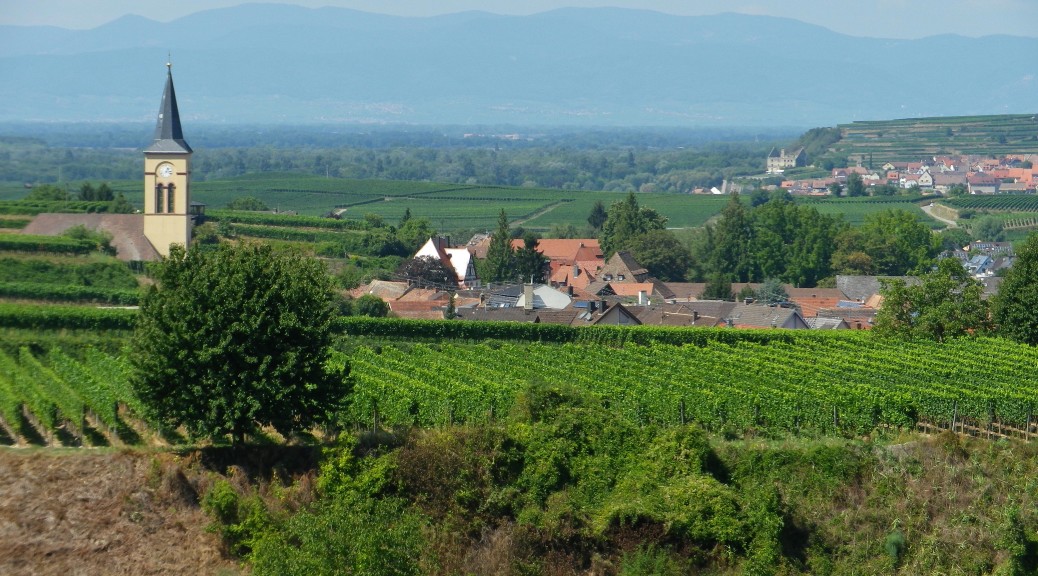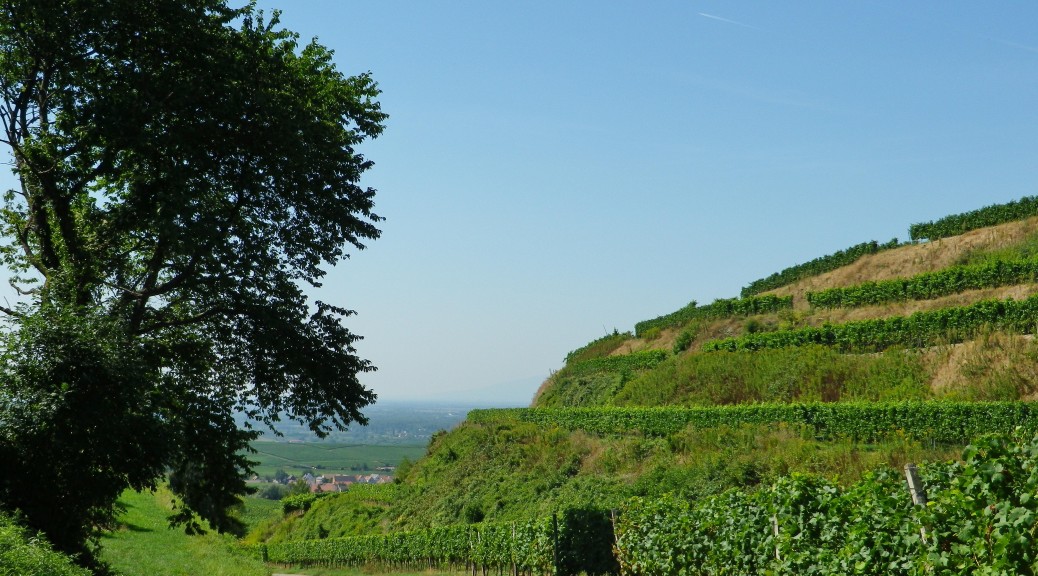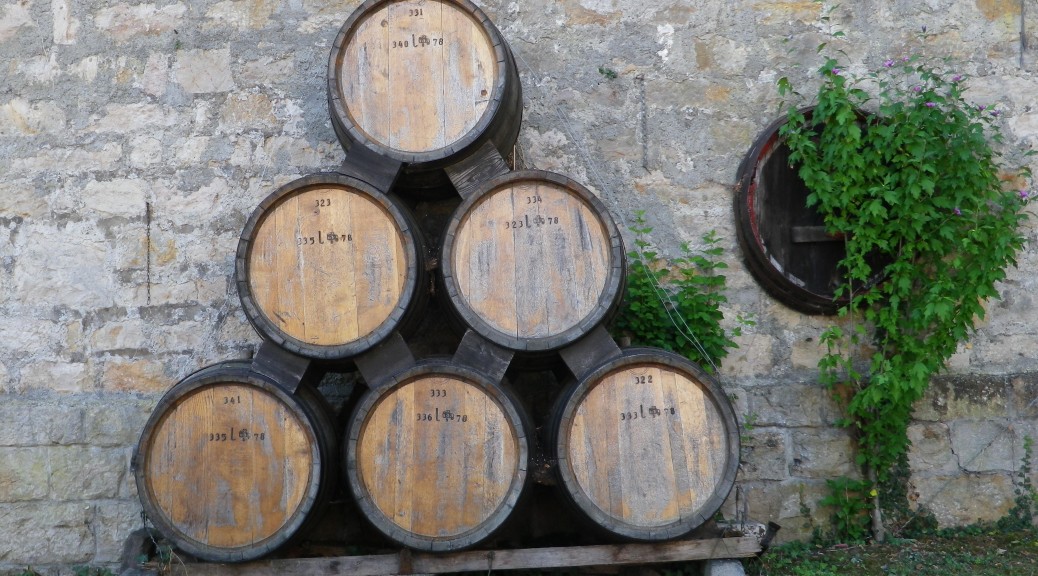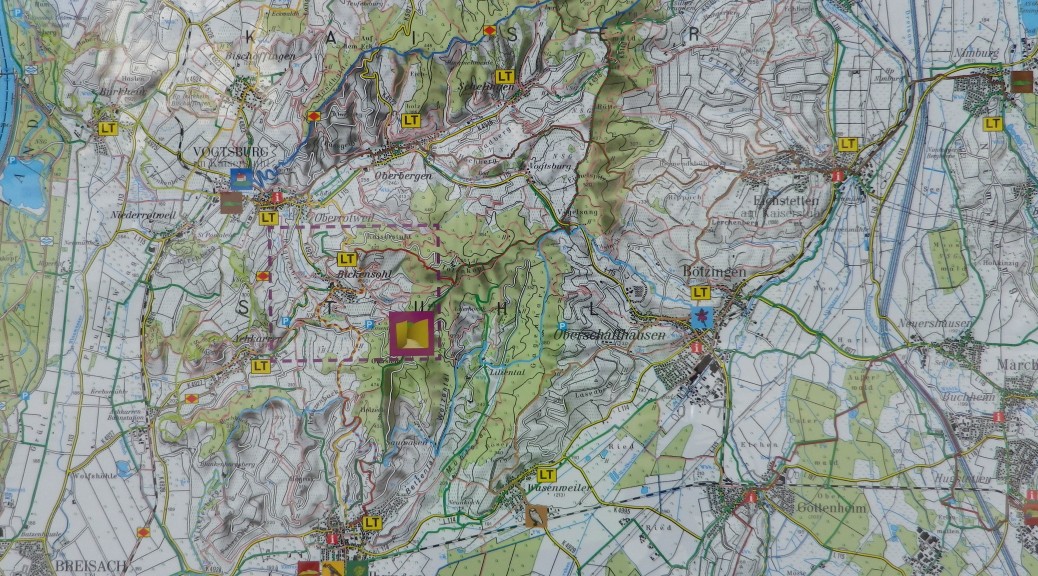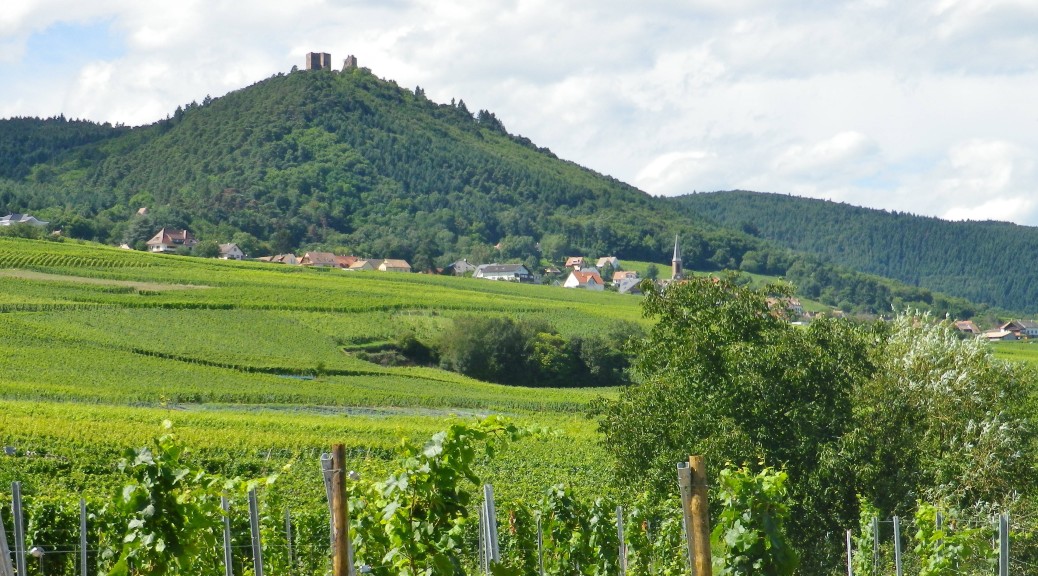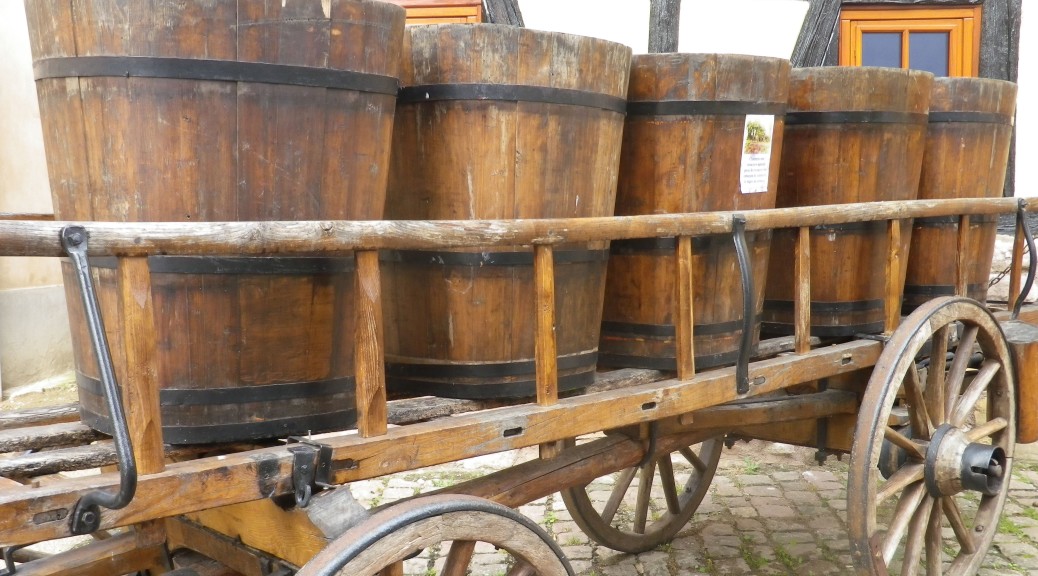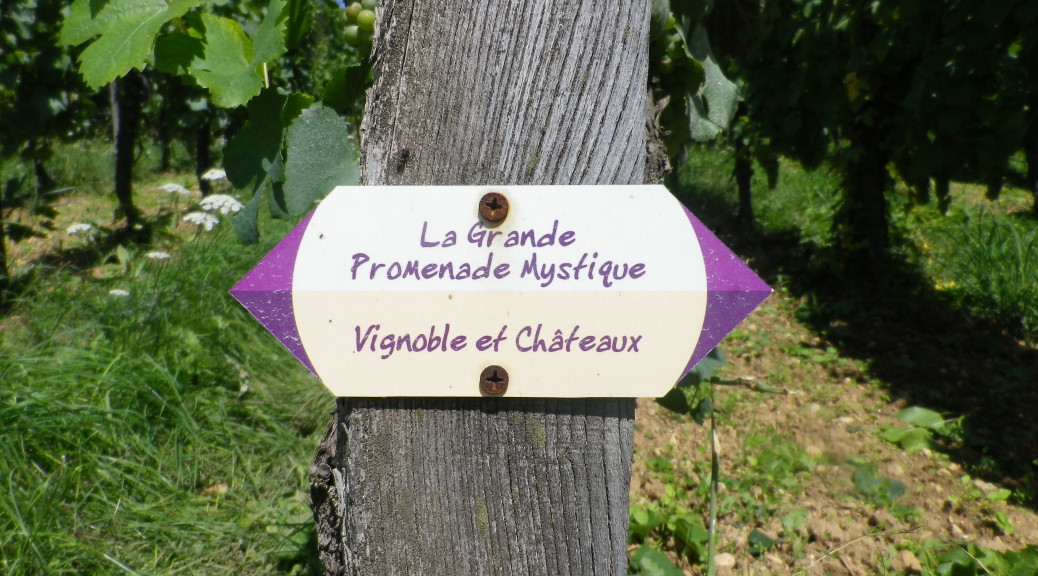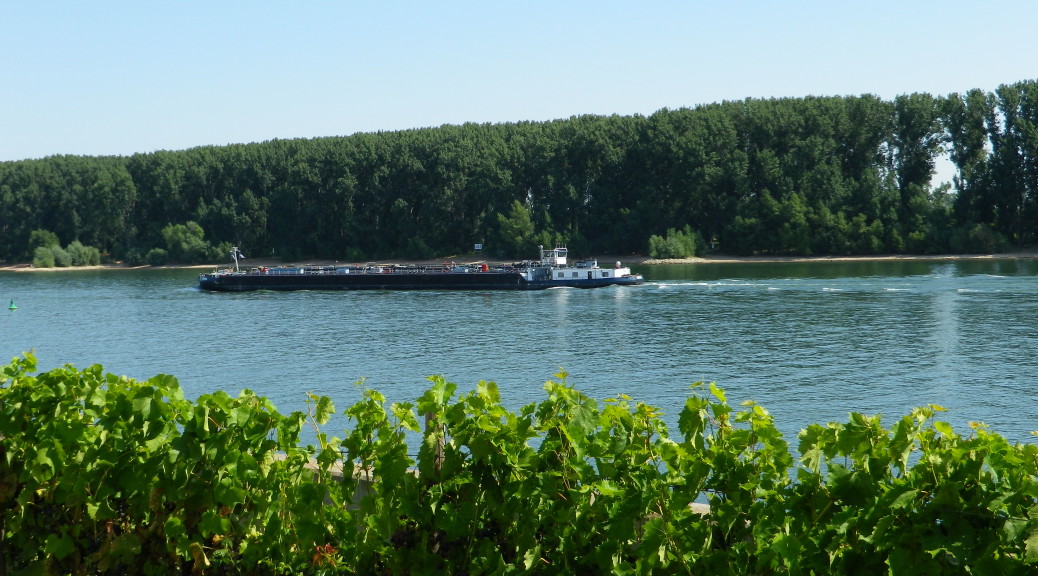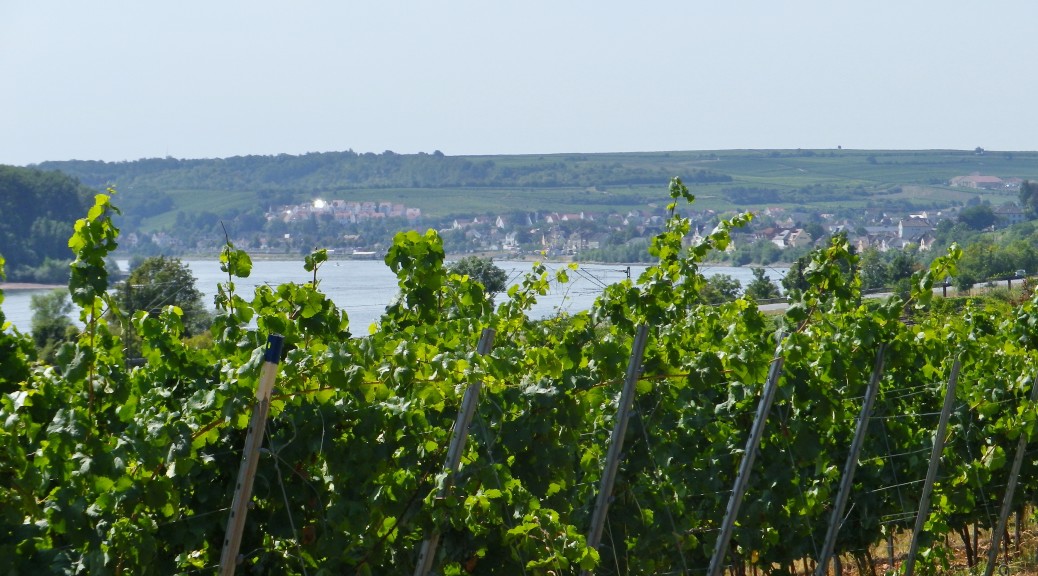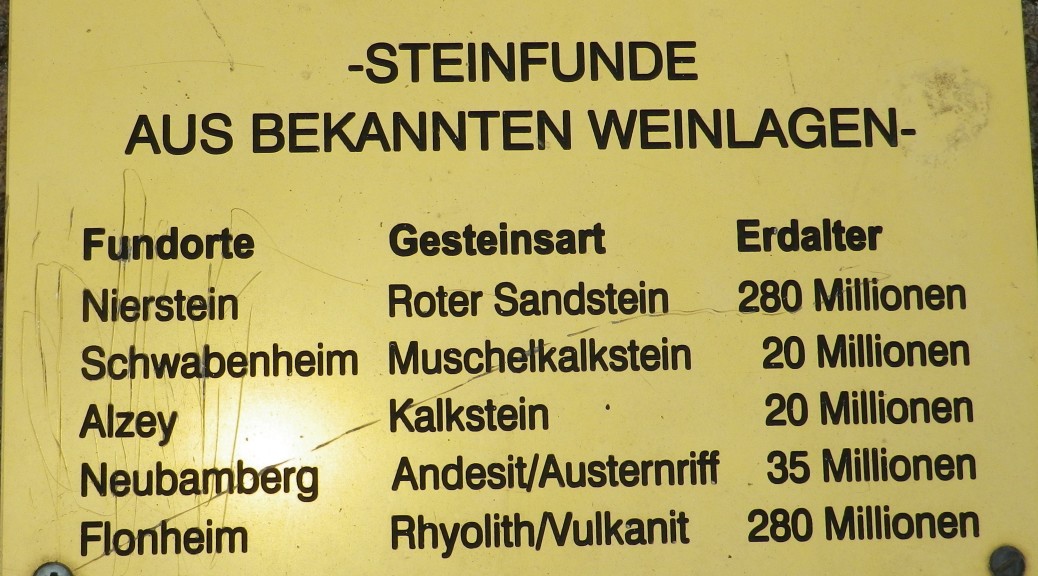Riding in the Emperor’s Seat
The Kaiserstuhl (Emperor’s Seat or Chair), rises in dramatic isolation from the flatlands of the valley of the Rhine. This vine-covered promontory allegedly got its name from the actions there of an early Holy Roman Emperor. Its majestic appearance alone is reason enough for the name, in my opinion.
The Kaiserstuhl promontory overlooks former imperial holdings north, south, east and west. It contains two wine districts in the German wine region of Baden, the Tuniberg and the eponymous Kaiserstuhl, and it abuts two others. Additionally, in the distance, on the other side of the Rhine, lie the vineyards of Alsace, France. Wine is definitely king in this southwest corner of Germany!
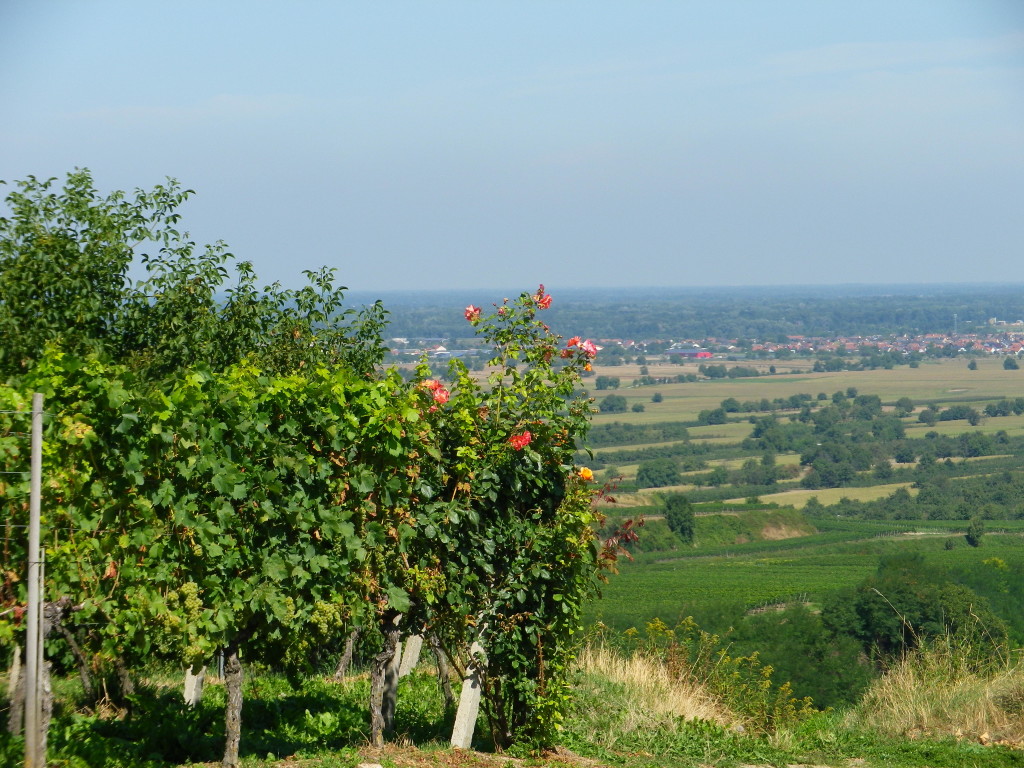
Wine Notes: Baden’s Kaiserstuhl
What I Learned
The Kaiserstuhl is a wine district within the German wine region of Baden. With almost 4300 hectares (over 10,500 acres), it is the largest of all nine wine districts in Baden.
Radweg Weinland Kaiserstuhl: Trail in a Nutshell
Trail Name: Radwege durch Weinland Baden: Kaiserstuhl Alternative (Bike Trails through Baden Wine-land: Kaiserstuhl Alternative [Route])
Trail Type: Mid-distance trail; almost exclusively paved, (two short sections, less than a half mile total, were hard-pack surfaces), well maintained, but no consistently specific markings for the route itself.
Length: total: 49 kilometers/30 miles
Convenient to: Freiburg, Germany
Marking: No trail marking specific to this trail, and it is at times on other named trails (like the Rheintal Radweg (with a green sign and white lettering) from Malterdingen to Koenigschaffhausen)
Continue reading Radweg Weinland Kaiserstuhl: Trail in a Nutshell
Vineyards and Castles
Vineyards and Castles: Two of my absolute favorite European travel experiences, and I experienced them both on this delightful circuit trail in southern Alsace!
In France, it is more likely that you will find palaces and vineyards. But in Alsace, a famous wine region where for centuries French and German armies clashed, nobles built castles. Literally dozens remain to be seen today. Although most are in ruins, they powerfully evoke a sense of time and place for those visiting their often eerie haunts. This is especially true if you are willing to hike to some of the more remote ones, on distant hills, overlooking remote valleys, practically shrouded by vegetation.
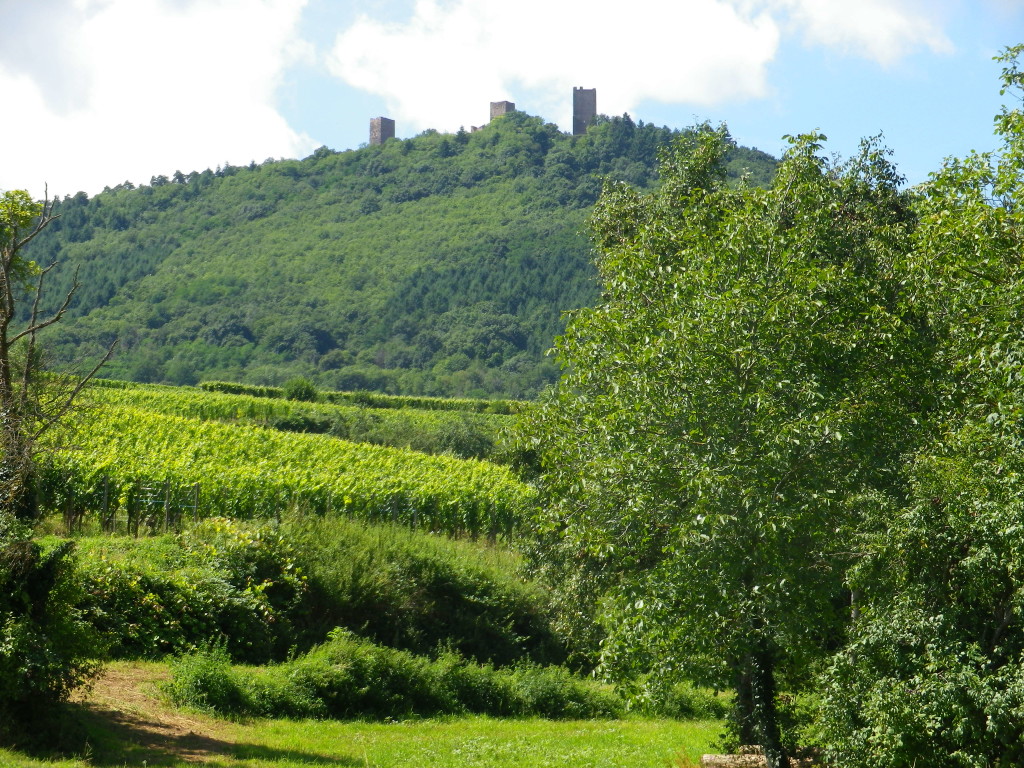
Wine Notes: Alsace Haut-Rhin
What I Learned
Alsace’s Haut-Rhin (Upper Rhine) area’s interesting geological history resulted in some great terroirs. It was initially born of volcanic activity. Once spent, the volcanic mountains collapsed on themselves, and an ancient sea covered the area. Then two mountain chains arose (the Vosges in France, and the Black Forest range in Germany), and the ancient Rhine river poured through the resulting valley. As the river receded to its current banks, it exposed the slopes of the Vosges, on which the Alsatian vineyards currently lie. The soil here is incredibly complex, thanks to this geological history, and it results in minerally, and complex wines.
Alsace’s Vineyards and Castles: Trail in a Nutshell
Trail Name: Vignoble et Chateaux
Trail Type: Mid-distance circuit; varied surface types (paved, grass, dirt, rock), with some steps to climb; fairly well-maintained trail; the route itself is usually clearly marked, except in a couple of places.
Length: Total: 10.5 kilometers/6.5 miles
Convenient to: Colmar, France
Marking: Trail name “Vignoble et Chateaux” in purple letters on white background. (Another trail name also appears on these signs when trails overlap.)
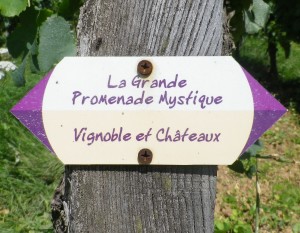
Continue reading Alsace’s Vineyards and Castles: Trail in a Nutshell
Gallery August 2015
Wine for a Song
Rather than referring to the cost of the wine here (although some quality producers offer great Rheinterrassen wine at very reasonable prices), today’s post title refers to the Song of the Nibelungen, that epic poem of feasts with wine, hosted by powerful kings with brave knights, and a fearless slayer of dragons guarding vast treasures.
The poem (later adapted and set to music in Wagner’s Ring Cycle), tells of the life and death of the dragon-slaying hero Siegfried, and his relationship with the Burgundians. Much of the action takes place in and around the city of Worms “on the Rhine”, which is home to the court of the Burgundian king Gunther and his wife and queen Brunhild. (It is also now home to several sculptures of dragons, commemorating this facet of the poem.)
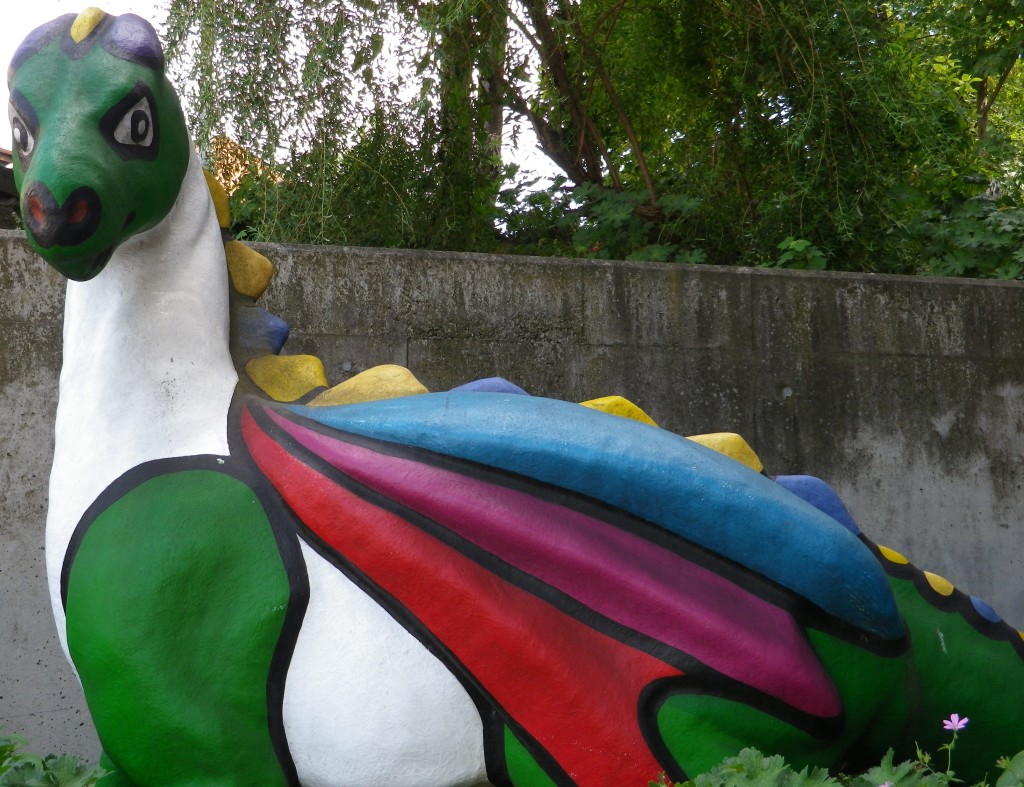
Wine Notes: Rheinhessen Rheinterrassen
What I Learned:
Off all the German states (or Laende), Rheinland Pfalz has the most wine regions. And of all the German wine regions, the Rheinhessen is the biggest. On the left/west bank of the Rhine, between roughly Worms and Mainz, it extends away from the river to as far west as Alzey-Weinheim, itself about 25 kilometers from the Rhine. In total, Rheinhessen vines cover approximately 26,000 hectares/65,000 acres.
